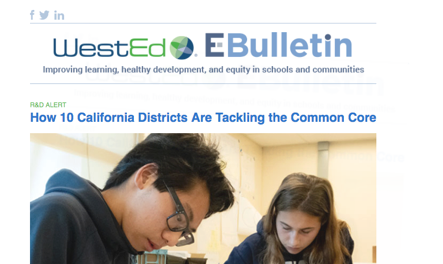Mentoring Program Supports Collaborative School Culture
Description
Schools and districts are under increasing pressure to ensure ongoing teacher learning. The rollout of rigorous new Common Core State Standards, the ongoing drive to close achievement gaps, and a growing focus on teacher evaluation illustrate the need to promote and ensure teacher effectiveness.
These days, learning isn’t just expected of students. Schools and districts are under increasing pressure to ensure ongoing teacher learning. The advent of rigorous new Common Core State Standards, the ongoing drive to close achievement gaps, and the increasing focus on teacher evaluation signal that the need to ensure teacher effectiveness has never been greater.
This article offers a “deep dive” into developing an effective mentoring model. It’s the product of 20 year’s work and research by WestEd’s Kathy Dunne and Susan Villani.
Mentoring gives exemplary teachers an opportunity to expand their role by training to become mentors to new teachers. And the collaborative coaching dialog between mentor and novice that defines the model “has a way of spilling over into the broader school culture, transforming instructional conversations among experienced teachers and school leaders, as well,” notes Villani.
Collaborative coaching helps new teachers learn how to navigate the practical aspects of their profession and refine instructional skills.
Resource Details
Product Information
Copyright: 2013Format: PDF
Pages: 3
Publisher: WestEd
Stay Connected
Subscribe to the E-Bulletin and receive regular updates on research, free resources, solutions, and job postings from WestEd.
Your download will be available after you subscribe, or choose no thanks.







